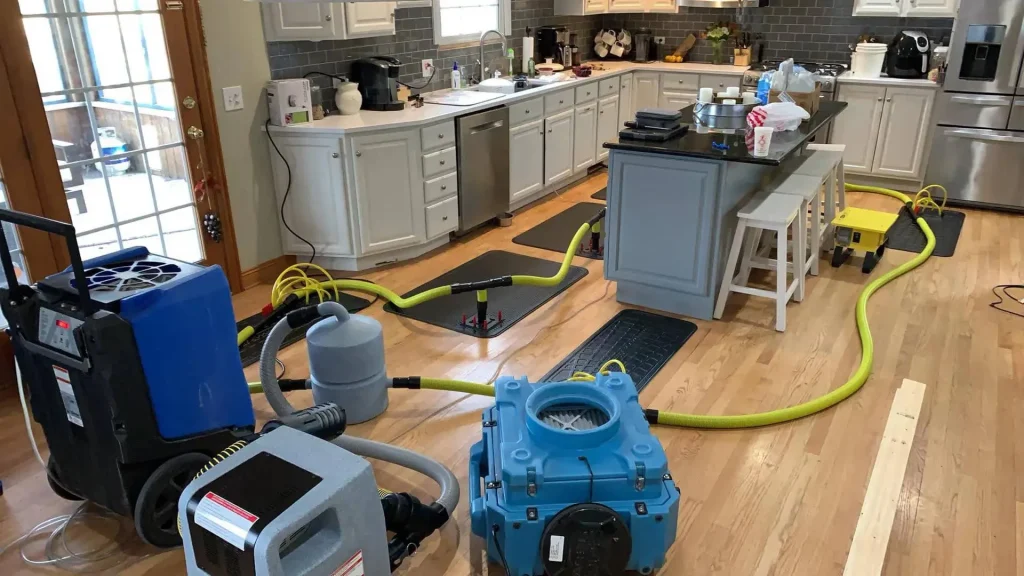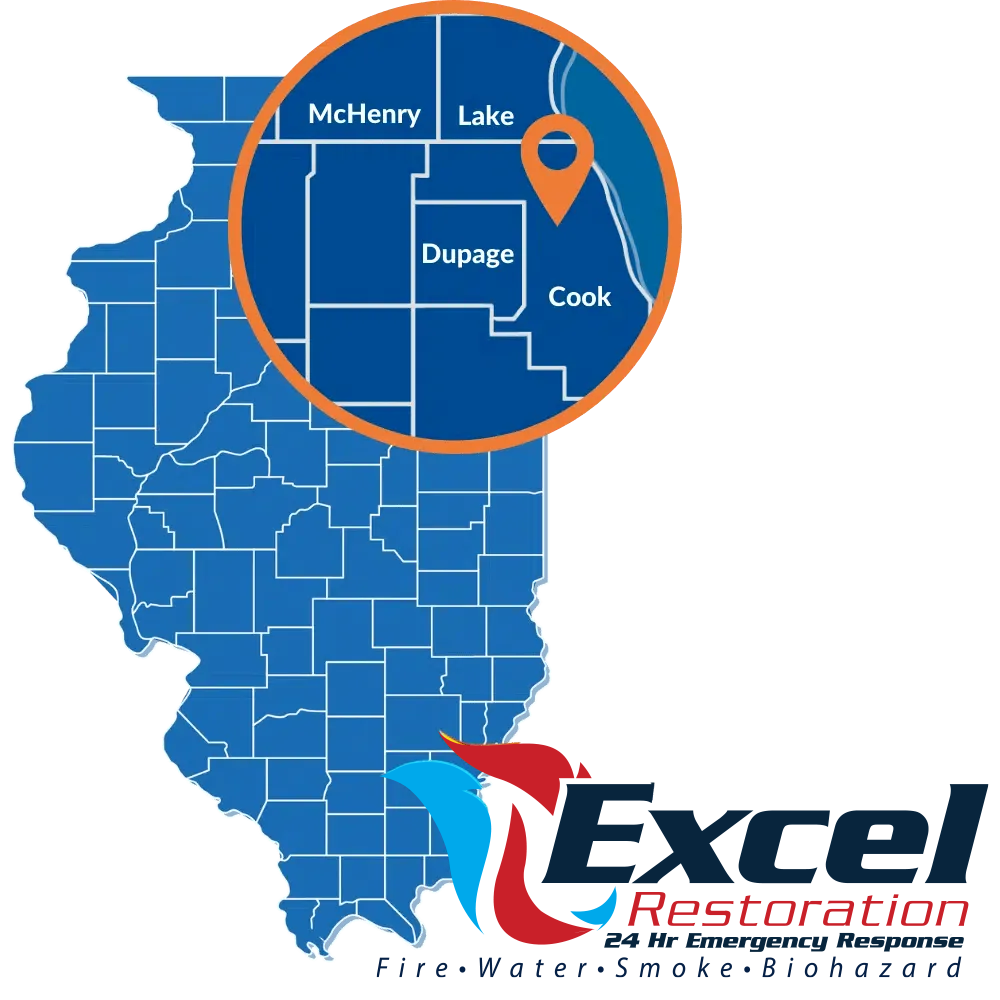Spring Flood Prevention Tips to Avoid a Flooded Basement
Once the long, cold winter finally appears to be on its way out, spring comes as a welcome arrival for many in Illinois.
That said, the wet season brings with it a huge risk of spring flooding – and this can be a major challenge for many homeowners.
Unfortunately, basement flooding in Illinois can be quite a common occurrence. However, prevention is always better than cure. And there are several precautions savvy property owners can take to keep their basements dry.
Here are a few handy spring flood prevention tips from the experts at Excel Fire And Water Damage Restoration Services:
1) Check your gutters and drainage systems regularly
Some of the main culprits for basement flooding are blocked gutters and drainage systems. They can easily get clogged up by natural debris, such as twigs and dead leaves, in the winter months. So, it’s advisable to check these regularly and clean them out when necessary.
When heavy rain arrives, blocked gutters can stop rainwater from passing to the downspout. Instead, this water will spill over the gutter, down the home’s siding, and into pools around the foundation.
2) Clear or extend your downspouts
Downspouts are very important for carrying water away from your property. Therefore, keeping them clear of debris and well-positioned is crucial.
Your downspouts can create a draining problem if they don’t direct water at least three feet away from your property. If this is the case, it may be wise to install downspout extensions.
This will ensure water doesn’t gather around the base of the home, allowing it to seep into your basement.
3) Slope your yard
If your lawn angles toward your house, this can cause rainwater to run toward your foundation and increase the chance of a basement leak.
Improving the grade of your yard can help prevent this. By adding soil to low points and around the home’s perimeter, you can slope your yard and give the rainwater an alternate path to follow.
For a natural, more aesthetic look, you can plant grasses or shrubs in these areas.
4) Repair leaky and dripping pipes
It’s important to repair leaks and drips as soon as they appear. This is because slow drips can cause hidden widespread damage and, over time, may even lead to a burst pipe.
Clamps and waterproof tape can provide temporary fixes, but only a plumber can carry out a permanent repair.
5) Seal up wall and foundation cracks
Water can get through even the smallest of hairline cracks. That’s why homeowners in Illinois should carry out regular inspections of the walls and foundation of their basements.
Minor cracks can be sealed with epoxy or masonry sealer but if larger cracks are detected, these can be more serious and require the services of a professional contractor.
6) Make sure your window wells are properly fitted
Basement windows are highly susceptible to leaks, especially those that are at or below grade.
Window wells, therefore, must be properly fitted to prevent rainwater from seeping into the basement.
7) Install a sump pump – and regularly check it
A sump pump can be a critical last line of defense against basement flooding. When they detect large amounts of water, these systems automatically pump out the excess.
However, they can only do so if they’re properly maintained, kept clear of blockages and their power source is secure.

8) Install a backwater valve on your sewer line
In the event of sudden rainfall overwhelming city sewer lines, having a backwater valve on your sewer line stops sewage from flowing backward into your property.
Getting one installed is a simple step to prevent spring basement flooding.
9) Keep track of the local weather reports
Flash flooding can happen very quickly. Pay attention to local flood warnings and weather alerts and act quickly.
If your property is in the line of flash flooding, you can mitigate damage by placing sandbags around your foundation and other important or vulnerable structures.
Likewise, you should move rugs, furniture, electrical appliances, and other valuables to the upper levels of your home, shut off electricity at the breaker panel, and put major appliances (HVAC, heaters, washing machines, etc) on concrete or styrofoam blocks.
10) Get a flood sensor
A flood sensor is a simple device that can help you prevent basement flooding by monitoring moisture levels in your home. It will alert you so you can act quickly in the event of a flood.
These sensors are ideal for basements, laundry rooms, and bathrooms.
For emergencies that can’t be prevented, call in professional water damage restoration experts in Illinois
Sometimes there’s nothing you can do to stop the inevitable.
If you have a flooded basement, you need the help of a flood damage restoration service.
Contact the experts at Excel Fire And Water Damage Restoration Services. Our professional team of technicians is available 24 hours a day to respond to any flooding emergency.
We’re experts in flood cleanup and water damage restoration. Our dedicated teams have the necessary machinery and experience to restore your home to its original condition as quickly as possible.
Give us a call whenever you need us at (224) 412-5222.


Contact Information:
Excel Restoration
4501 Giant Oak Dr
McHenry, IL 60051
United States
Justin Parat
https://exceldryout.com

















